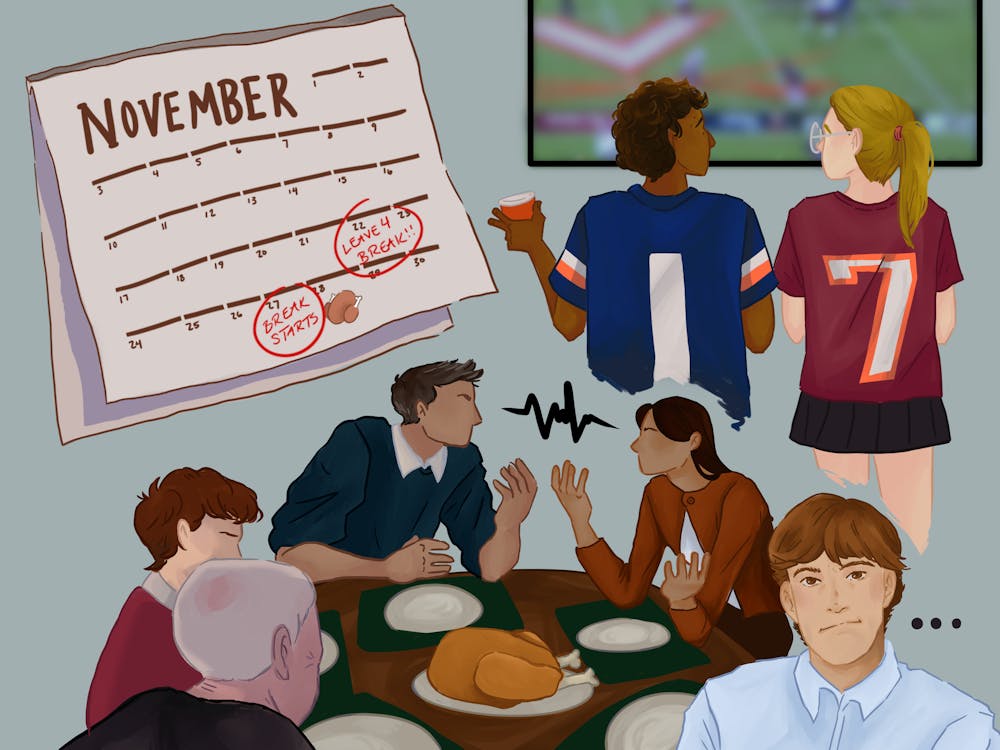There’s a life hack I like to call the “theater of life." It provides entertainment and insight during boring classes, long car rides and awkward family dinners. Even better, it empowers me to get through hard workouts and difficult conversations. The theater of life helps me step back and see the big picture when a situation seems unbearable.
Here’s how it works: whenever I feel down, tired, angry or discouraged, I picture my future self narrating the story of that moment. You can place yourself as far into the future as you like, and you can address anyone.
Disclaimer: I can’t take credit for this idea. As with most profound wisdom in this world, you can find it by opening a book. Viktor E. Frankl, an Austrian neurologist and psychiatrist, wrote his book, “Man’s Search for Meaning,” after surviving years in a concentration camp during the Holocaust. While I won’t provide a synopsis of the book, suffice it to say I consider it one of the most powerful books I’ve ever opened, and I’ve found the technique applies to everyday challenges.
College students could use the theater of life in different situations, but with the same outcome. After receiving a bad grade, for example, picture yourself in 20 years with a good job and a surrounded by friends, laughing about how paranoid you felt in college that a single bad grade could derail your entire future.
Or, when you have no motivation to work out, picture yourself in the middle of your workout feeling strong and confident. Your favorite song comes on and you push a little bit harder, grinning and going faster just to see if you can. You feel sorry for anybody who isn’t working out and thus won’t experience this pure, powerful endorphin rush. With this image, you may find you have the motivation after all.
I also like to enter this theater when I’m bored or when life falls into a routine that ceases to excite me. Last week I took a five-hour car ride to upstate New York to see a local band with my family. Countless farms with miles between towns soon transformed a long morning into an endless afternoon. I wallowed in boredom and self-pity.
Enter the theater: rather than thinking, “How much longer?” until minutes felt like hours, I imagined sitting at dinner with my mom and sister a week later back at home. At imaginary dinner, the sun shone and we laughed at the entire dreary situation. “Remember that desolate ghost town we drove through trying to find anything to eat for dinner?” we asked. “Remember when we finally got there, and the band was so bad we left after 20 minutes? And ended up driving five hours just to watch ‘The Hangover’ in a crappy hotel room?”
Suddenly the trip seemed funny — a story we would laugh about because it was so awful. I won’t say I absolutely loved the rest of that car ride, but I played music and sang along to old songs I hadn’t heard in years. In a week, I wanted to reminisce on how we played “The Real Slim Shady” five times over — not how I sat silently in the back seat with my headphones on.
Whatever your current situation is, however unpleasant, you have two choices: make the best of it by smiling and laughing a little, or simply endure. But tell me, who wants to look back on a part of life and say, “That was okay. I endured?"
Perhaps it’s easier said than done, but when you struggle, think about how you want to tell this story in a day, or a month or 20 years. If your current imaginary narration is boring and unpleasant, it’s not too late to rewrite the next chapter.
Alyssa’s column runs biweekly. She can be reached at a.passarelli@cavalierdaily.com.




